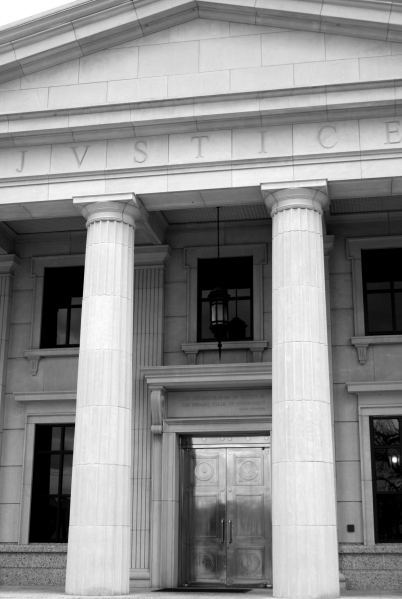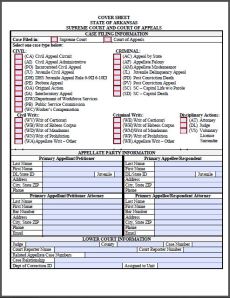As we noted in our original post (below), the Arkansas Supreme Court has proposed a set of rule changes that abolish the abstracting and addendum requirement. In the original post, we promised to provide updates and more details, so we’re doing that now. Before delving into those details, please note that these are proposed revisions, so they are subject to change. However, if you can get your record in electronic format, you may participate in a pilot project using these rules. So, with that said, here are the major changes (and, of course, review the per curiam before filing your brief; this is just a general overview):
The Biggest Change: Abolition of the Abstracting and Addendum Requirement
This, of course, is the biggest change. Attorneys are no longer required to prepare an abstract or an addendum. Rather, attorneys will refer to the relevant page number in the record. As mentioned below, the record will now be comprised of two separate portions: a pleading portion and a transcript portion. If you cite to the pleading portion of the record, use the format (RP 10), and if you cite to the transcript portion, use the format (RT 10). The court has a computer program that converts those citations to links to the relevant portion of the record.
Preparation and Filing of the Record
As mentioned above, there will now be two portions of the record: pleadings and transcripts. The record must be in electronic format (PDF), and each portion of the record must be sequentially numbered such that the first page of the PDF is the first page of the record. This means that whatever the first page of the PDF is (cover page, table of contents, etc.), it must be page 1.Under the proposed rule, attorneys are still responsible for filing the record, but unlike in the past, the record can now be filed electronically.
Brief Components
In addition to the elimination of the abstract and addendum, the informational statement (the form that included questions about the appeal and the brief) has been eliminated. The jurisdictional statement has more specific requirements under the proposed rule than under the current rule. There are also a couple of new sections: a request for relief and a certificate of compliance with Administrative Order No. 19 (relating to confidential information) and with the word-count limitations (discussed in more detail below). Finally, the “statement of the case” has been replaced with the “statement of the case and facts.”
Length Limitations
There are two significant changes to the length of the brief. First, rather than limiting the statement of the case to a certain number of pages and the argument to a certain number of pages, the limitation is a global limitation that can be allocated in whatever way makes the most sense. Second, the limitation is converted to a word limit, rather than a page limit. The word count includes the jurisdictional statement, the statement of the case and the facts, the argument, and the request for relief. All other portions of the brief are disregarded for purposes of the word count. Here are the limits:
| Brief Type | Word Count Limit |
| Appellant’s Brief | 8,600 |
| Appellee’s Brief | 8,600 |
| Reply Brief | 2,875 |
| Appellee’s/Cross-Appellant’s Brief | 14,325 |
| Reply/Cross-Appellee’s Brief | 11,475 |
ORIGINAL POST
As Justice Rhonda Wood described it on Twitter, there was some “HUGE” news from the Arkansas Supreme Court this morning:
HUGE News from the Arkansas Supreme Court this morning. The day has arrived!! Now attorneys- go file those electronic records
IN RE ACCEPTANCE OF RECORDS ON APPEAL IN ELECTRONIC FORMAT AND ELIMINATION OF THE ABSTRACTING AND ADDENDUM REQUIREMENTS https://t.co/tc3RPQasiy
— JusticeRhondaWood (@JudgeRhondaWood) June 6, 2019

We’re still reading the per curiam, and it’s full of changes,
but here’s a brief synopsis (you can expect a more detailed examination later).
First, effective immediately, attorneys may begin requesting electronic records from the circuit clerk, and the circuit clerk is required to provide the record in electronic format.
Second, the Arkansas Supreme Court published for comment revisions to the rules that accommodate these electronic records. Those rules abolish the requirements of an abstract and addendum.
Third—and here’s the best part—even though those rules are currently only published for comment (meaning they are not in effect yet), attorneys who choose to file their records electronically are permitted to file under the new rules as part of a pilot project.
As the Supreme Court noted in its per curiam, the abstracting requirement (and, to a lesser extent, the addendum requirement) had outlived their usefulness. In our opinion, the abstract adds needless time and expense (both in attorney’s fees and printing costs) to the appellate process, it is confusing, and even a well-done abstract can’t effectively capture what occurred at trial. This is a good move, and we look forward to seeing it fully implemented. And you can rest assured that we will never order another paper record again!


 Lack of Final Order Prevents Arkansas Supreme Court from Issuing a Stay of Pulaski County Circuit Court’s Ruling in Same-Sex Marriage Case
Lack of Final Order Prevents Arkansas Supreme Court from Issuing a Stay of Pulaski County Circuit Court’s Ruling in Same-Sex Marriage Case